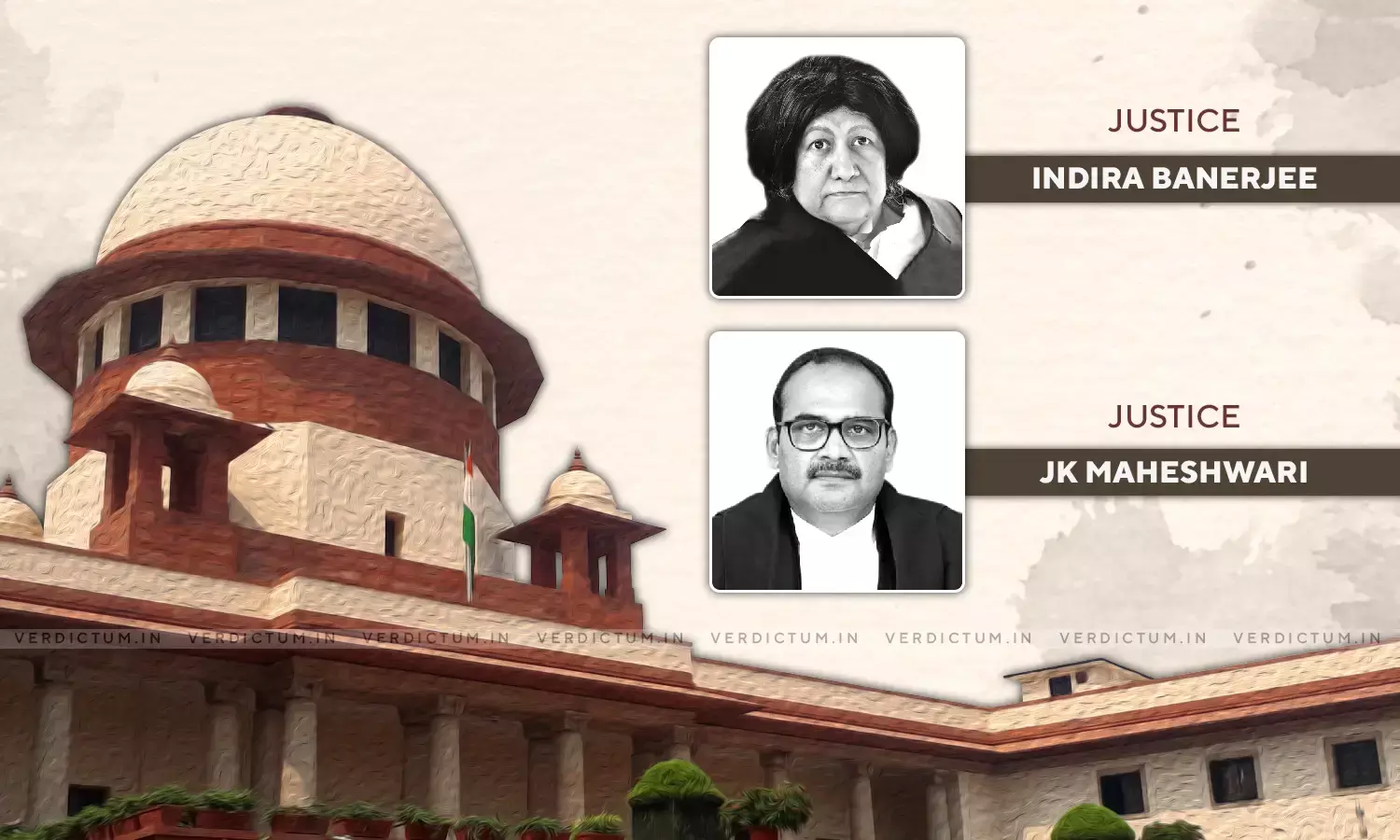IBC: There Is No Bar To Withdraw Application Admitted U/s. 7 IBC Before Committee Of Creditors Is Constituted- SC

The Supreme Court has observed that before the Committee of Creditors (CoC) is constituted, there is no bar to withdrawing the application of the applicant admitted under Section 7 of the Insolvency and Bankruptcy Code for initiating the corporate insolvency resolution process (CIRP).
A Bench of Justice Indira Banerjee & Justice JK Maheshwari held –
"Section 12A of the IBC clearly permits withdrawal of an application under Section 7 of the IBC that has been admitted on an application made by the applicant. The question of approval of the Committee of Creditors by the requisite percentage of votes, can only arise after the Committee of Creditors is constituted. Before the Committee of Creditors is constituted, there is, in our view, no bar to withdrawal by the applicant of an application admitted under Section 7 of the IBC."
An appeal was preferred under Section 62 IBC before the Supreme Court assailing the interim order passed by the NCLAT, Principal Bench, New Delhi, whereby the NCLAT issued a notice of the appeal but did not restrain the Interim Resolution Professional from proceedings with CIRP of the Corporate Debtor. The NCLAT however, restrained the IRP from constituting the CoC till the next date of hearing.
In the meanwhile, the Appellant and the Respondents were given the opportunity to settle their disputes before the Adjudicating Authority (NCLT) in terms of Section 12A of the IBC read with Rule 11 of the National Company Law Tribunal Rules, 2016 (NCLT Rules).
The parties had amicably settled their disputes and entered into a formal settlement. Thereafter, the NCLAT considering the settlement arrived at between the parties, granted an interim stay of publication under Section 13 of the IBC and further gave liberty to the parties to adopt procedure under Section 12A of IBC.
The NCLAT stayed the formation of CoC but declined to exercise e its power under Rule 11 of the NCLAT Rules to take on record the settlement and dispose of the matter. Further, the NCLAT permitted the IRP to issue publication and also hand over all assets and proceed with the CIRP even though the matter had been settled between the parties.
Aggrieved the Appellant approached the Apex Court.
Senior Counsel Mukul Rohtagi appeared for the Appellant before the Supreme Court.
The Court noted that Section 12A IBC enables the Adjudicating Authority to allow the withdrawal of an application admitted under Section 7 or Section 9 or Section 10, on an application made by the applicant with the approval of 90% voting shares of the Committee of Creditors in such a manner as may be specified.
Further, the Court also noted, "A reading of the statement of objects and reasons with the statutory Rule 11 of the NCLT Rules enables the NCLT to pass orders for the ends of justice including order permitting an applicant for CIRP to withdraw its application and to enable a corporate body to carry on business with ease, free of any impediment."
The Court held that considering the investments made by the Corporate Debtor and considering the number of people dependant on the Corporate Debtor for their survival and livelihood, there was no reason why the applicant for the CIRP, should not be allowed to withdraw its application once its disputes have been settled.
The Bench added that the settlement cannot be stifled before the Constitution of Creditors in anticipation of claims against the Corporate Debtor from third persons and thus observed –
"The withdrawal of an application for CIRP by the applicant would not prevent any other financial creditor from taking recourse to a proceeding under IBC. The urgency to abide by the timelines for completion of the resolution process is not a reason to stifle the settlement."
Thus, the Court held that the order impugned is only an interim order which does not call for interference, and in appeal under Section 62 IBC, there is no question of law that requires determination by the Court.
Accordingly, the Court dismissed the appeal.
Cause Title – Ashok G. Rajani v. Beacon Trusteeship Ltd. & Ors.
Click here to read/download the Judgment

